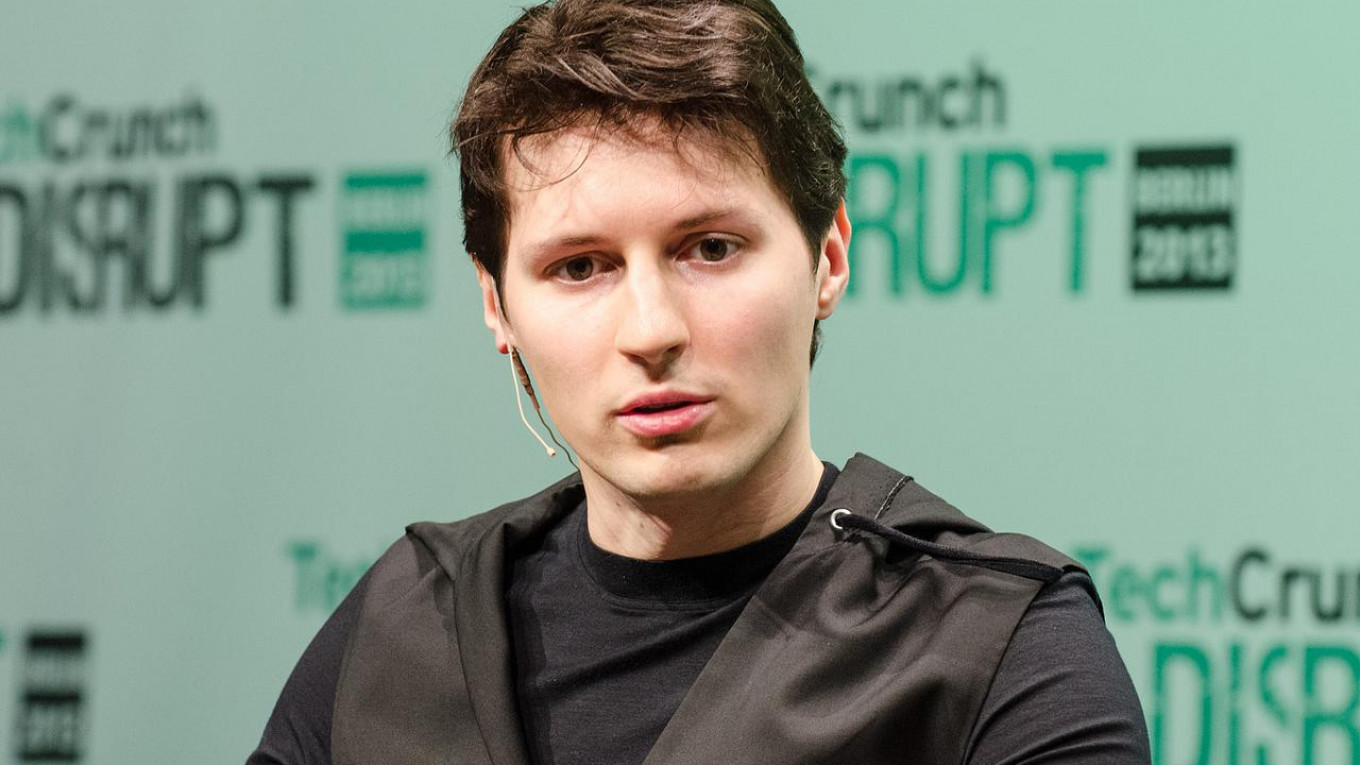Russia’s Federal Security Service (FSB) is seeking the encryption keys to the popular Telegram messaging app, its founder Pavel Durov said Wednesday.
Durov agreed to register Telegram with a government database in June after Russia's media censor threatened to block the service. He stopped short of complying with a new law that requires websites and applications to store users’ data for six months starting next year.
Writing on his personal Telegram channel early Wednesday, Durov said Russia is “rushing to join Iran in filing charges against the Telegram management."
“They seem to be unhappy because we won't comply with the unconstitutional ‘Yarovaya laws' and won't give them the encryption keys they wanted,” he said in an English-language post.
The law, which comes into force July 1, 2018, is named after its champion, State Duma Deputy Irina Yarovaya. In addition to the local storage stipulations, the law allows the FSB access to users’ messaging data without a court order.
The "Yarovaya law” requires companies to provide the FSB with encryption keys, and in effect mandates secret ways for the authorities to bypass authentication, a method known as a backdoor.
The FSB filed an administrative violation against Telegram for failing to submit “information required to decode the received, transmitted, delivered and (or) processed e-mails," according to a Sept. 14 letter that Durov attached to his post on the VK social network.
Russia’s media censor, Roskomnadzor, began blocking messaging services that refuse to hand over information for the government’s "Register of Information Disseminators” last spring.
The register, a list of every website allowing the publication of user-generated content, was set up in 2014.
Durov told the Vedomosti newspaper that it was unclear whether the administrative violation report would lead to Telegram being blocked in Russia.
He cited lawyers as saying that these administrative charges could complicate his travels to and from Russia.
In his Telegram channel, Durov responded to Iran’s criminal case against him on charges of providing services to terrorists, saying he wished he could visit Iran, but that it was “more painful” to not visit Russia because of his parents.
“But Mom and Dad are not too old to travel and the globe is still pretty big."
A Message from The Moscow Times:
Dear readers,
We are facing unprecedented challenges. Russia's Prosecutor General's Office has designated The Moscow Times as an "undesirable" organization, criminalizing our work and putting our staff at risk of prosecution. This follows our earlier unjust labeling as a "foreign agent."
These actions are direct attempts to silence independent journalism in Russia. The authorities claim our work "discredits the decisions of the Russian leadership." We see things differently: we strive to provide accurate, unbiased reporting on Russia.
We, the journalists of The Moscow Times, refuse to be silenced. But to continue our work, we need your help.
Your support, no matter how small, makes a world of difference. If you can, please support us monthly starting from just $2. It's quick to set up, and every contribution makes a significant impact.
By supporting The Moscow Times, you're defending open, independent journalism in the face of repression. Thank you for standing with us.
Remind me later.






